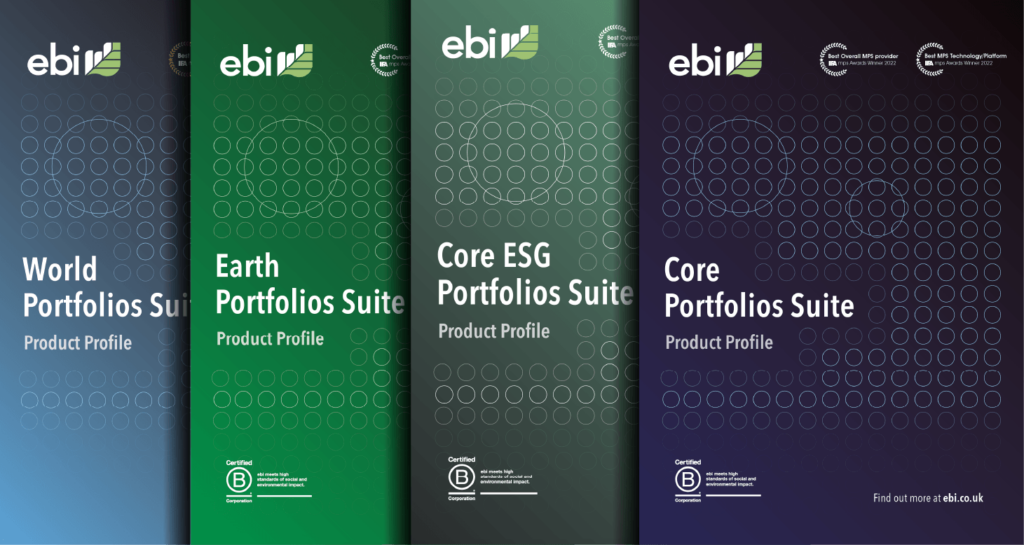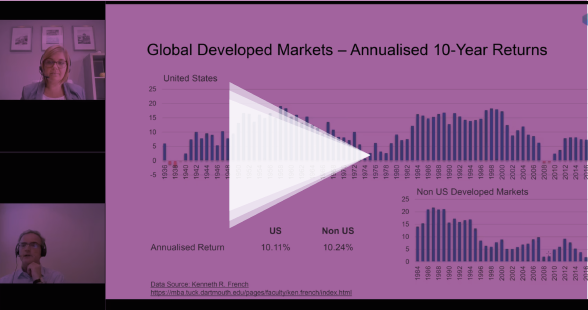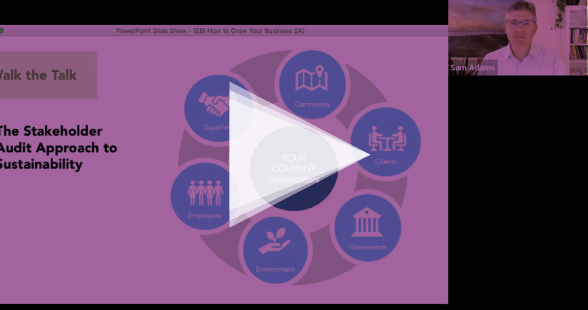ESG Investing
The growth of sustainable, or ESG investing, over the past few years has been rapid with Bloomberg Intelligence estimating that ESG assets may hit $53 trillion by 2025, a third of global AUM.¹
With environmental challenges dominating media coverage, and the COVID-19 pandemic highlighting many social inequities, investors are increasingly asking advisers how they can invest responsibly.

ESG Investing
ESG stands for Environmental, Social and Governance, and refers to the three key factors when measuring the sustainability impact of an investment in a business or company.
ESG criteria are used to screen investments for inclusion or exclusion within a portfolio.1
ESG investing strategies
There are several approaches to ESG investing, each with its own benefits and challenges.
These include ESG Integration, Impact investing, Exclusion based investing and Positive Screening investing.

The 3 pillars of ESG
Environmental, Social and Governance (ESG) is a responsible investment strategy that seeks both financial return and positive change.
The three pillars of ESG investing combine to define what most people would categorise as good business practice. Environmental issues cover how companies interact with the environment, Social issues cover companies’ conduct towards their internal and external communities, and Governance issues cover how companies behave in their business activities.
Environmental
• Air & Water Pollution
• Biodiversity & Deforestation
• Climate Change
• Energy Efficiency
• Waste Management
• Water Scarcity
Producing more output with less natural resources, energy, water, waste and pollution.

Social
• Community Relations
• Customer Satisfaction
• Employee Engagement
• Gender & Diversity
• Human Rights
• Labour Standards
Improving relations with key stakeholders: employees, customers, suppliers.

Governance
• Audit Committee Structure
• Board Composition
• Bribery & Corruption
• Executive Compensation
• Lobbying Activities
• Political Contributions
Reducing risk through board
oversight and risk controls.

Investment Solutions
At ebi, we believe that sustainable investing is the future.
Through our diverse range of sustainable investment solutions, we incorporate Environmental, Social and Governance (ESG) concerns into our investment decisions with the goal of improving the world.
Introducing our ESG Portfolios

Earth Portfolios
The Earth portfolios Suite sits at the heart of ebi’s investment philosophy. Globally diversified, with increased allocations to carefully selected premiums, and are ESG screened across both the equity and Bond elements of the portfolio.
In late 2022, ebi collaborated with Northern Trust to build a selection of ESG screened Bond funds; the first of their kind in the UK. This made the Earth Portfolio Suite unique in being 100% ESG screened.
The 5 factors in ebi’s Earth portfolios suite are Size, Quality, Momentum, Minimum Volatility and Value. Find out more about factor investing.

Core ESG Portfolios
The Core ESG portfolios suite include a range of market-indexed portfolios with an Environmental, Social and Governance (ESG) overlay. Each portfolios within the Core ESG suite represents a passive, low cost investment, aiming to provide capital appreciation through global diversification.
The portfolio range is more appropriate for long-term holding periods and for investors aiming to gain broad global market exposure using low-cost passive investment funds that incorporate an ESG overlay.
Our Portfolios
ebi has created a range of low-cost, diversified, passively managed portfolios.

Greenwashing
What is Greenwashing?
Greenwashing is the exaggeration or unsubstantiated credentials of investment products, services or companies.
Also known as ‘green sheening’, greenwashing can be inadvertent, or a cynical ploy some companies use to jump on the ESG bandwagon, taking advantage of the lack of clear definition of what sustainability or green actually means.
A good example of greenwashing is when a plastic bottle is labelled 100% recyclable. This doesn’t mean it will be, or even likely to be recycled, which is misleading to the consumer.
The FCA’s upcoming Sustainability Disclosure Requirements regulation aims to address the risk of greenwashing.
The importance of ESG Data
ESG data is crucial in addressing greenwashing. Quality ESG data is clear, measurable and verified. It improves decision making when considering the sustainability of companies, and investment funds.
How is it being tackled?
The answer is simply look at the evidence;
- Does the company in question back up their claims with data?
- Have they institutionalised sustainability within the company?
- Do they have a board or committee that monitor and report on green issues?
- Additionally looking at targets the company sets for itself can tell a story. Are they achieving their targets easily, or finding it difficult to meet them?
The stewardship efforts of fund managers helps to push back those companies that overstate their ‘green’ credentials.
Our webinar with Julia Kochetygova, Head of EMA Stewardship for Northern Trust, ‘How Fund Managers influence companies for sustainability’ discusses sustainable investing, stewardship, and how fund managers influence positive change within companies.
Emissions Calculator
Try our emissions calculator, a valuable tool in demonstrating the benefits of sustainable investing to clients.
Enter your investment amount, choose the ebi Earth portfolio and the comparison portfolio, and find out the annual carbon savings in metric tonnes.
The calculator also provides equivalent examples, such as the comparable number of miles driven in an average car, or how many viewings of the ‘Friends’ complete series boxset!

Learn more about ESG
If you would like a better understanding of ESG investing, how it differs from SRI investing for example, or would like some tips on how to talk about ESG with clients then book one of our regular Sam Adams webinars.
• Understanding a framework for sustainable investing.
• Creating your sustainability story and philosophy.
• Understanding your client motivations.
• Best practices for speaking on sustainability.
Sam Adams is a consultant at ebi with extensive expertise in ESG investing. When not working with ebi, he’s running his own ESG asset management firm in California.

Catch up on our ESG-focussed webinars
Watch our ESG webinars, with thought leaders from across the investment world giving us their unique insights into sustainable investing.
¹ Bloomberg Intelligence, 21 February 2021 [online]
² ebi webinar, Georg Kell, Decarbonisation, Digitalization and Sustainability’, 2021 [online]
³ Market Business News, ESG definition [online]









